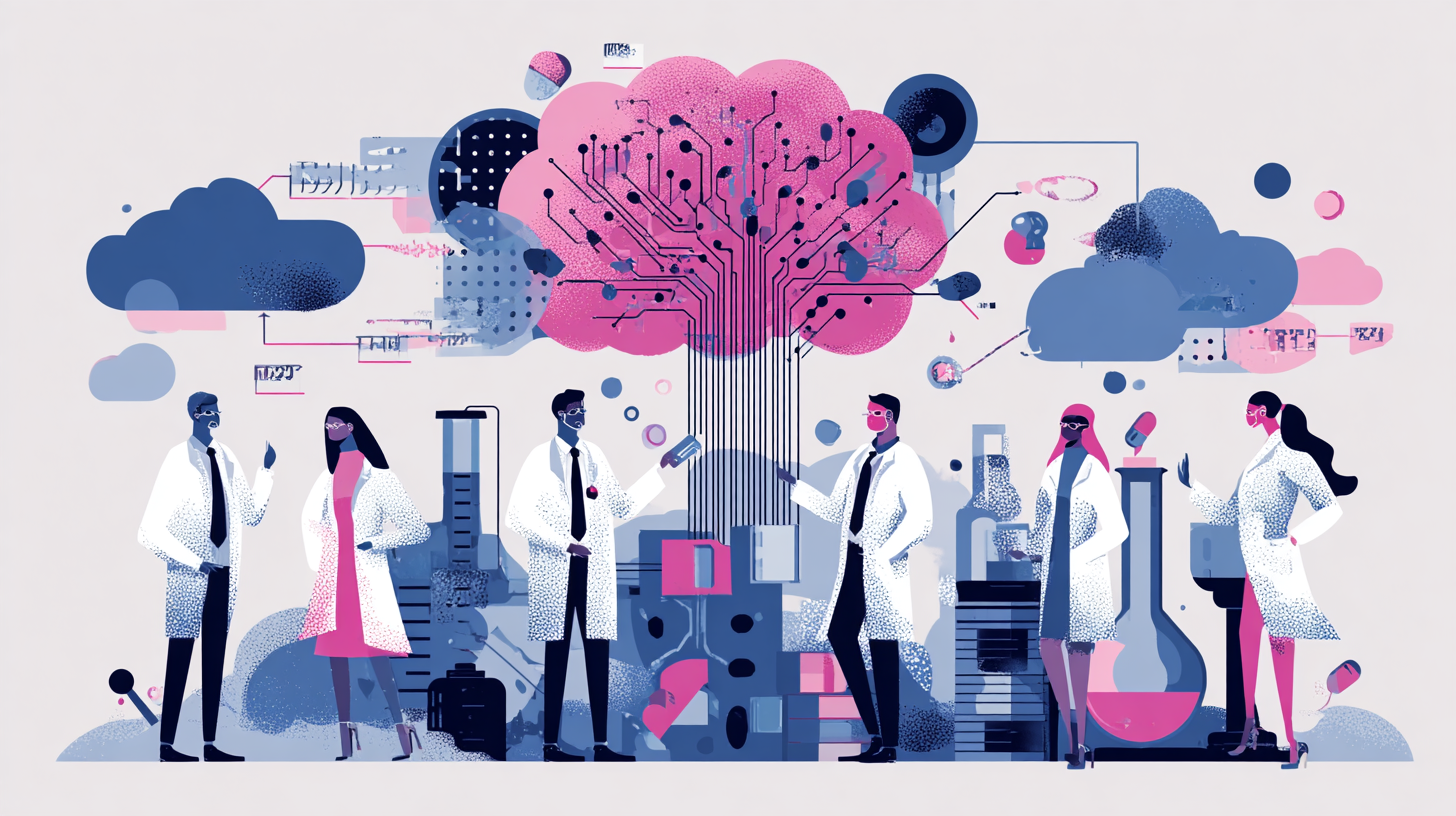
AI in Pharmaceuticals: Enhancing Data Infrastructure and Integration
The rapid evolution of artificial intelligence (AI) presents remarkable opportunities across industries, particularly in the pharmaceutical sector. As you explore the merging worlds of AI and pharmaceuticals, you’re likely to uncover how enhanced data infrastructure and integration can lead to significant advancements in drug development, patient outcomes, and operational efficiency. Not only is this a fascinating space, it’s also one ripe with potential for those willing to adopt and embrace these technologies.
The Importance of Data in Pharmaceuticals
To appreciate the role of AI in pharmaceuticals, you first need to understand the foundational element that drives it all: data. The pharmaceutical industry produces vast amounts of data daily—from clinical trial results to patient records, and research findings to operational metrics. However, this data is often siloed within various departments or systems. Imagine the wealth of insights you could gain if all this information were integrated seamlessly. By utilizing AI to enhance data infrastructure, you can streamline workflows and promote collaboration among different stakeholders within your organization.
AI’s Role in Data Integration
AI technologies serve as the bridge that connects disparate data sources. With machine learning algorithms, you can mine and interpret massive datasets quickly and efficiently. AI helps you integrate these datasets into a unified platform, providing a holistic view of operations. This capability allows you to analyze patterns and trends that may go unnoticed if each dataset were examined in isolation. The result? Improved decision-making processes that can drive faster drug development timelines and enhance research efficiency.

Enhancing Drug Discovery and Development Processes
One of the most promising applications of AI in pharmaceutical data integration is the acceleration of drug discovery and development processes. Traditional methods of drug discovery can be time-consuming and expensive, often taking approximately 10-15 years to bring a new drug to market. By leveraging AI, you can analyze existing research, clinical trials, and patient data to predict which drug compounds are most likely to succeed. This enables faster decision-making and resource allocation, reducing development time and costs significantly.
Case Study: AI in Drug Design
Consider the case of a biotech company that utilized AI to identify new therapeutic targets for cancer treatment. By employing machine learning algorithms to process extensive genomic data, the company was able to simulate how different drug compounds would interact with specific proteins. This not only accelerated the drug design process but also enabled the research team to focus on the most promising candidates, ultimately leading to faster clinical trials and a shortened time to market.
Predictive Analytics: Empowering Insights and Decisions
AI doesn’t just react to existing data; it also provides predictive insights for future scenarios. With predictive analytics, you can forecast trends based on historical data and current market conditions. This empowers you to make informed decisions, whether it’s about resource allocation, trial design, or market strategies.

Benefits of Predictive Analytics in Pharmaceuticals
Imagine being able to anticipate which therapies will be in demand or which patient demographics will most likely respond to a treatment. Predictive analytics can help you uncover these insights. By integrating algorithms that learn from historical outcomes, you can optimize patient recruitment strategies for clinical trials, ensuring that you’re hitting your target demographic efficiently and effectively.
Improving Patient Outcomes through AI Integration
At the heart of pharmaceuticals is the commitment to improving patient outcomes. AI has the potential to enhance this commitment in various ways, from personalizing treatment plans to ensuring better monitoring of patient health during clinical trials.
Personalized Medicine: A Practical Application
With access to enhanced data integration and AI’s analytical capabilities, you’re better positioned to offer personalized medicine tailored to individual patient needs. By analyzing genetic data alongside lifestyle factors and medical histories, AI algorithms can suggest the most effective treatments for specific patient profiles. This leads to better adherence rates, fewer adverse effects, and ultimately, improved patient outcomes.
Regulatory Challenges: Navigating the AI Landscape
As you delve into the integration of AI technologies in pharmaceuticals, it’s essential to be aware of the regulatory landscape. Regulatory bodies are still catching up to the rapid advancements in AI, which means that navigating these frameworks can be challenging. You’ll need to ensure that your AI systems are compliant with regulations regarding patient data privacy, ethical considerations, and clinical trial protocols.

Embracing Change While Managing Risks
The key is to embrace the change AI brings, while proactively managing associated risks. One way to do this is by establishing robust governance and oversight mechanisms for your AI systems. Keeping ethical considerations front and center will not only strengthen your compliance but also build trust with stakeholders, including patients, healthcare professionals, and regulatory bodies.
AI in Clinical Trials: Recruitment and Monitoring
Clinical trials are a crucial part of the drug development process. Inefficiencies in patient recruitment and monitoring can lead to significant delays and increased costs. AI provides solutions that enhance these processes. By analyzing real-world data, AI can identify potential study participants more effectively, ensuring that trials are completed on time.
Reducing Dropout Rates through Enhanced Monitoring
Moreover, AI can track patient adherence and provide real-time insights during clinical trials. Through the integration of wearable technology and mobile apps, you can continuously monitor patients’ health and behavior. This leads to increased engagement and can greatly reduce dropout rates—keeping your trials on track and within budget.
Ethical Considerations in AI Deployment
While the potential of AI in pharmaceuticals is tremendous, ethical considerations must be addressed. Deploying AI systems requires caution, particularly when it comes to data usage and patient privacy. Your organization will need to cultivate an ethical culture that prioritizes responsible AI practices, ensuring that AI technologies enhance—not compromise—patient care.
Building Trust through Transparency
Transparency is key. By being open about how you’re using AI and the data collected, you can build trust with both your team and patients. Setting ethical guidelines that govern AI use not only fosters accountability but promotes a culture of responsibility within your organization.
The Future of AI in Pharmaceuticals
The future of AI in pharmaceuticals looks bright. It is projected that AI will revolutionize how drugs are developed and brought to market. By enhancing data infrastructure and promoting integration, you’ll be at the forefront of this transformation. The next wave of AI innovations promises exciting opportunities to explore—enhanced drug efficacy, improved patient experiences, and more efficient operational processes.
Preparing for the Future
To prepare for this future, consider investing in comprehensive AI training programs for your staff. Familiarizing your team with AI tools and ethics will be essential as they navigate a landscape increasingly defined by technology. By fostering a culture open to learning and exploration, you position your organization to thrive in an ever-evolving digital environment.
Conclusion
AI in pharmaceuticals is not just a trend; it’s a paradigm shift that offers immense potential for data infrastructure and integration. From faster drug development to improved patient outcomes, embracing AI is essential for any pharmaceutical professional looking to stay at the cutting edge of the industry.
As you reflect on your own practices and strategies, consider how you might implement AI to streamline operations, enhance clinical trials, or personalize patient care. The rewards are great, but so too are the responsibilities that come with leveraging such advanced technologies.
Feel free to clap for this article, leave your thoughts in the comments, and subscribe to my Medium newsletter for regular updates. I’m excited to see what the future holds for AI in pharmaceuticals, and I invite you to join me on this journey!
